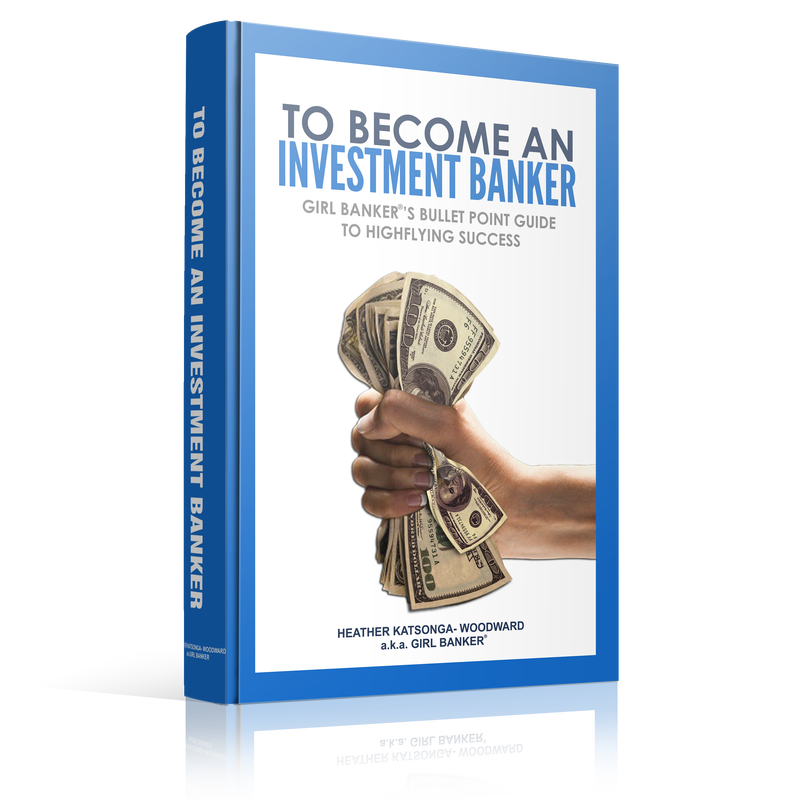 by Girl Banker Listen to the iTunes podcast instead. Seriously guys, a lot of people I know in banking spend without thinking. So despite the relatively high wage, by the end of their seventh year in banking, many don’t have any savings, property or anything else of relevance. What’s the point of working and blowing so much of your income that you can’t take any time out. There’s nothing fun or enjoyable about being cash-poor and asset-poor. Anyway, if you are serious about building a nest egg you need to have a strategy from day one. The moment some start their first proper investment banking job their attitude to money changes in a way that keeps them poor and job-dependent. These tips will ensure you’re not sucked into the same vortex. When I started in 2005 my analyst base pay was £35k or so. After tax, that was just over £1,900/month.  1. Decide how much you're going to save and stick to it I wanted to save £1,000 a month but in the end, I realised that this was far too ambitious. I still tried to do it for the whole of the first year; after 12 months I netted about £750 in savings per month including my sign-on bonus. That was still £9,000 in total, I was happy with that. 2. Decide what your first major investment will be and how much you will need for it This gives your saving strategy a purpose. I wanted to own my own property, badly! I was in luck, at this time interest rates were low and 100% and 105% mortgages were still plentiful. The dilemma: I knew banking doesn’t offer job security and I wondered whether or not buying a place at this early stage in my career might be too risky. I decided that it was risky but renting is even more risky. It’s far easier for a landlord to throw out a tenant than for a bank to make someone homeless. Decision: take the risk. At the time, I was reading Rich Dad, Poor Dad by Robert Kiyosaki and he went on and on about how the property you live in is not an investment because it costs so much to run. On that basis, I decided a two-bedroom property was the best solution. That way, I could monetise bedroom number two. Thanks, Bob! That was good advice. Boys, please note that a car is not an investment! (usually)  3. Open a share dealing account The moment I got my bonus, I worked out that I had more than enough for a deposit to buy the property I wanted. Dilemma: spend the excess or invest it. I decided to dabble in share dealing. I opened an account and threw £1,000 each at four stocks including Apple! I bought apple at $78/share and sold at c.$280/share a couple of years later. One of my worst moves ever! Key note: make sure you know all the fees that will be charged for share dealing. I prefer brokers that charge you for buying and selling stocks but don’t charge a quarterly or annual management fee of any sort. 4. Refuse to go out to over-the-top places There are lots of super expensive restaurants in London and their food does not necessarily match the price. When friends select a place to eat that will cost more than you are willing to spend, tell them so. There is no shame in that at all!  5. Refuse to subsidise other people’s alcohol needs I don’t usually drink any drinks because they contain too many empty calories. I drink water and tea mostly and a milky coffee (latte, mocha etc) once or twice a week as a treat. When the drinks bill comes I will exclude myself from it because I rightly have not been party to the consumption of any drinks. If I have drunk something, I ensure that what I am paying is more or less aligned with what I drunk. There’s no shame in that! 6. Steer your friends towards clubs that don’t have a minimum spend New York and London clubs love doing this: the best clubs will only allow you to enter if you agree to spend a certain amount. I refuse to pay. As a new analyst in training I noted that New York clubs really wanted more custom from girls. So a couple of guys with 5 girls were much more likely to gain entry than a couple of guys on their own. So, when the guys asked whether I wanted to go out, I just said I didn’t have any money. They would then (of course) say that they were going to fund the night out and I was game on! Sounds tight but I seriously didn’t have any cash at this time and didn’t own a credit card either so I wasn’t just being tight. Our very first wage was paid after the New York training programme.  7. If people call you tight or stingy, decide now that you don’t care Seriously, I don’t. I’m not even as cautious as I think I should be so any name calling doesn’t bother me one bit. 8. If you find yourself in a relationship with a profligate person, reconsider One of my guy friends found himself with a girlfriend who wanted Prada and Gucci gifts on the regular. He wasn’t even loaded: he’d entered banking at the height of the credit crunch and was comfortable but certainly not swimming in it. She was so money focused and I told him to give her the red card because their values were completely parallel – he eventually did.  9. Live like a student for as long as possible This is the best thing you can do for yourself. After year one my base salary was bumped up by c.30% and I decided that as long as I didn’t have kids, anything above £1,900 per month (the analyst wage) would be saved. I lived comfortably on much less so this, to me, was reasonable. I now also had a mortgage so being responsible was even more necessary. 10. Don’t be scared to detach yourself from the pack Almost everyone that I went into banking with decided to live in Notting Hill, Chelsea, Kensington and other such affluent areas. Rents ranged from £1,000 to £1,500 for a shared flat. I decided this was way too much and plus, I wanted my own space – I was tired of sharing after university. I found a one-bed newly built flat in South London (Nunhead) for just £725 – with the water bill included. That meant I was paying less than half of what some of my mates were paying in rent. On most week days, I only saw that flat after 10:00 p.m. On weekends, I saw it a little more but not much more because I was either catching up on sleep or visiting friends. It was a pretty place and I’m glad I wasn’t swayed by where everyone else had decided to live. I hope this gets you thinking about your own philosophy on money management and the extent to which your friends’ decisions influence your own behaviour. Peace and chicken grease, Heather
0 Comments
Leave a Reply. |
Girl Banker®I created my investment banking blog in 2012 as soon as I resigned from i-banking & published my book, To Become An Investment Banker.
Initially published at girlbanker.com, all posts were later subsumed into my personal website under katsonga.com/GirlBanker. With 7 years of front office i-banking experience from Goldman Sachs and HSBC, in both classic IBD (corporate finance) and Derivatives (DCM / FICC), the aim of GirlBanker.com was to make it as straight-forward as possible to get into a top tier investment bank. I'm also a CFA survivor having passed all three levels on the first attempt within 18 months - the shortest time possible. Categories
All
Archives
August 2017
|
Heather Katsonga-Woodward, a massive personal finance fanatic.
** All views expressed are my own and not those of any employer, past or present. ** Please get professional advice before re-arranging your personal finances.

 RSS Feed
RSS Feed





